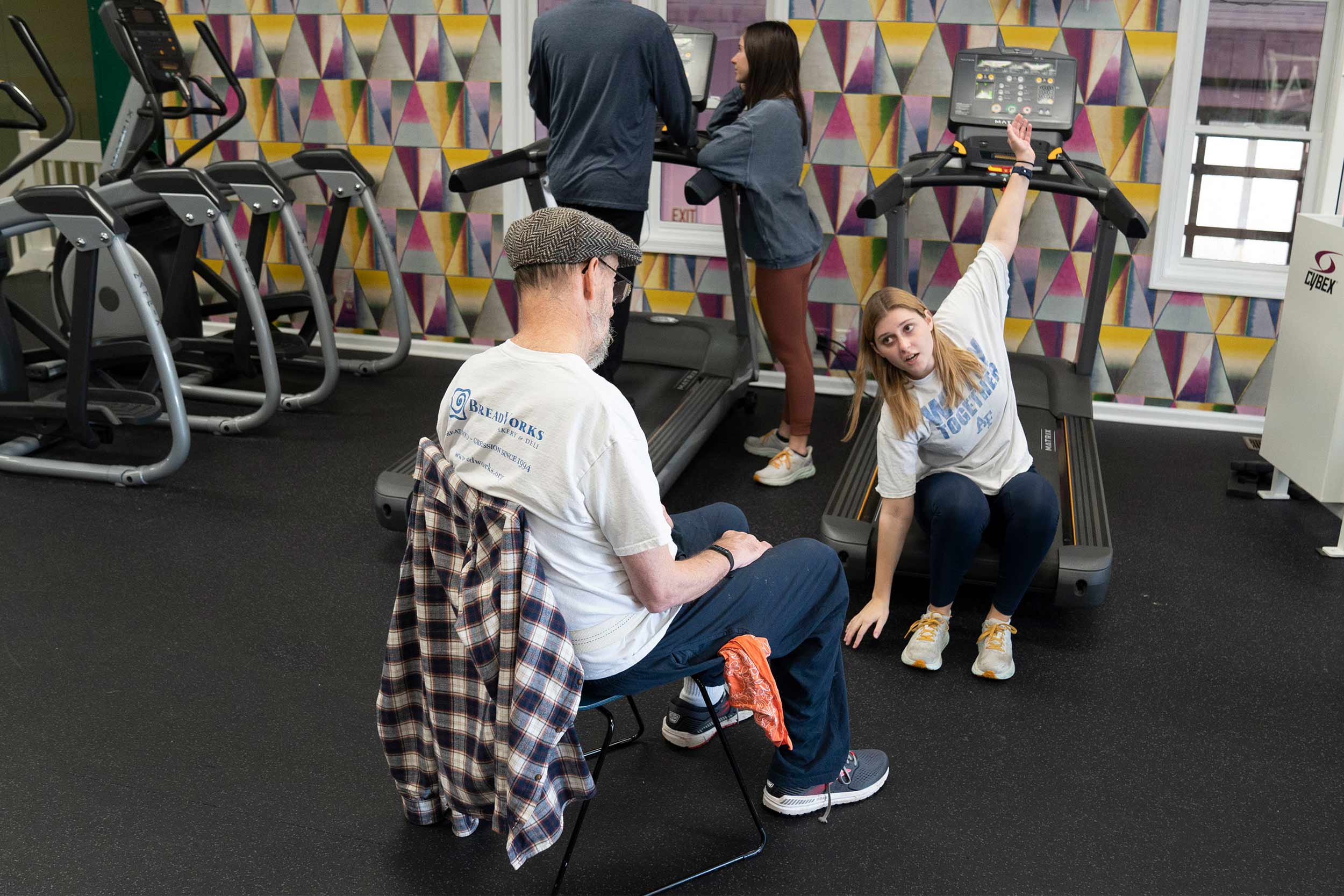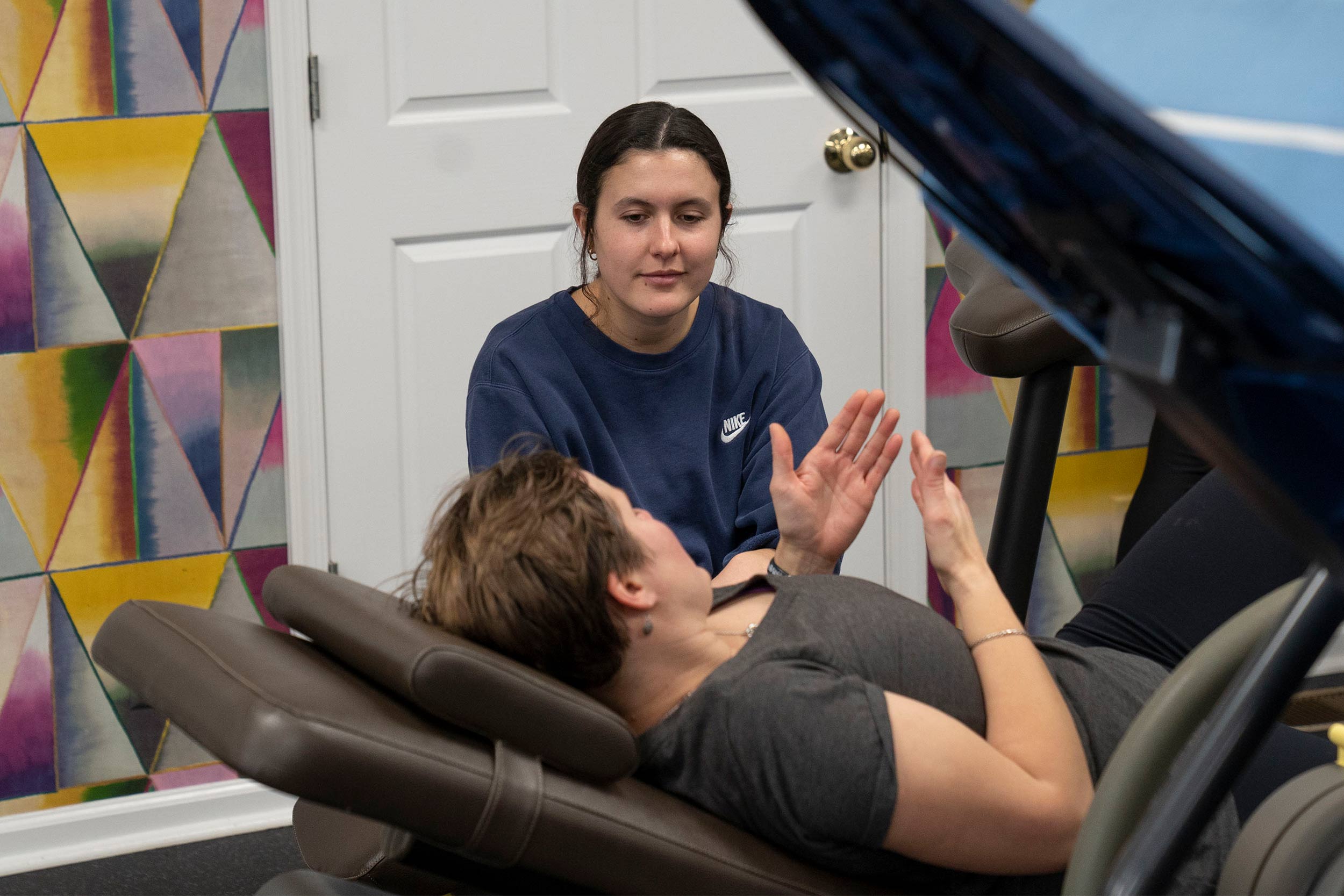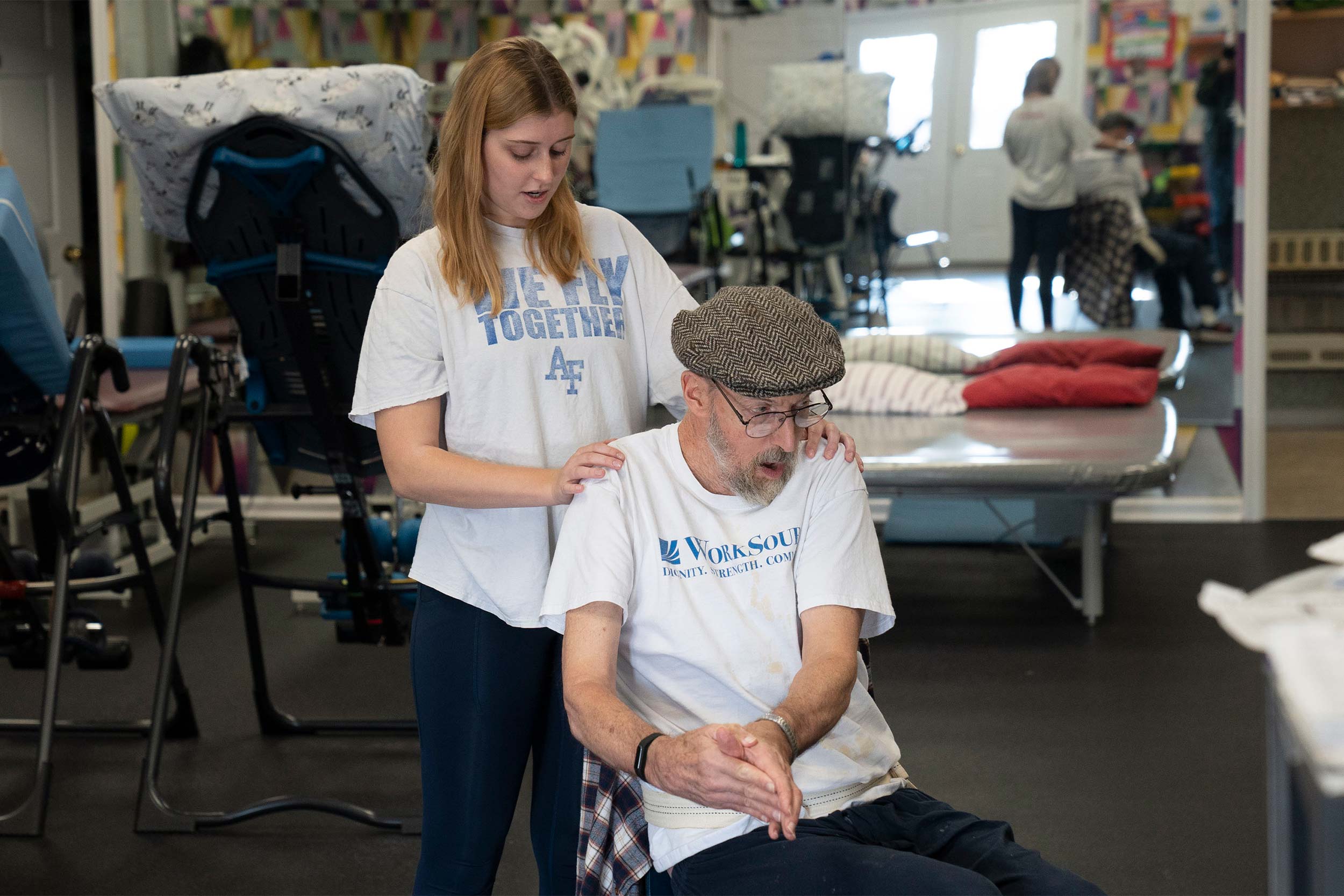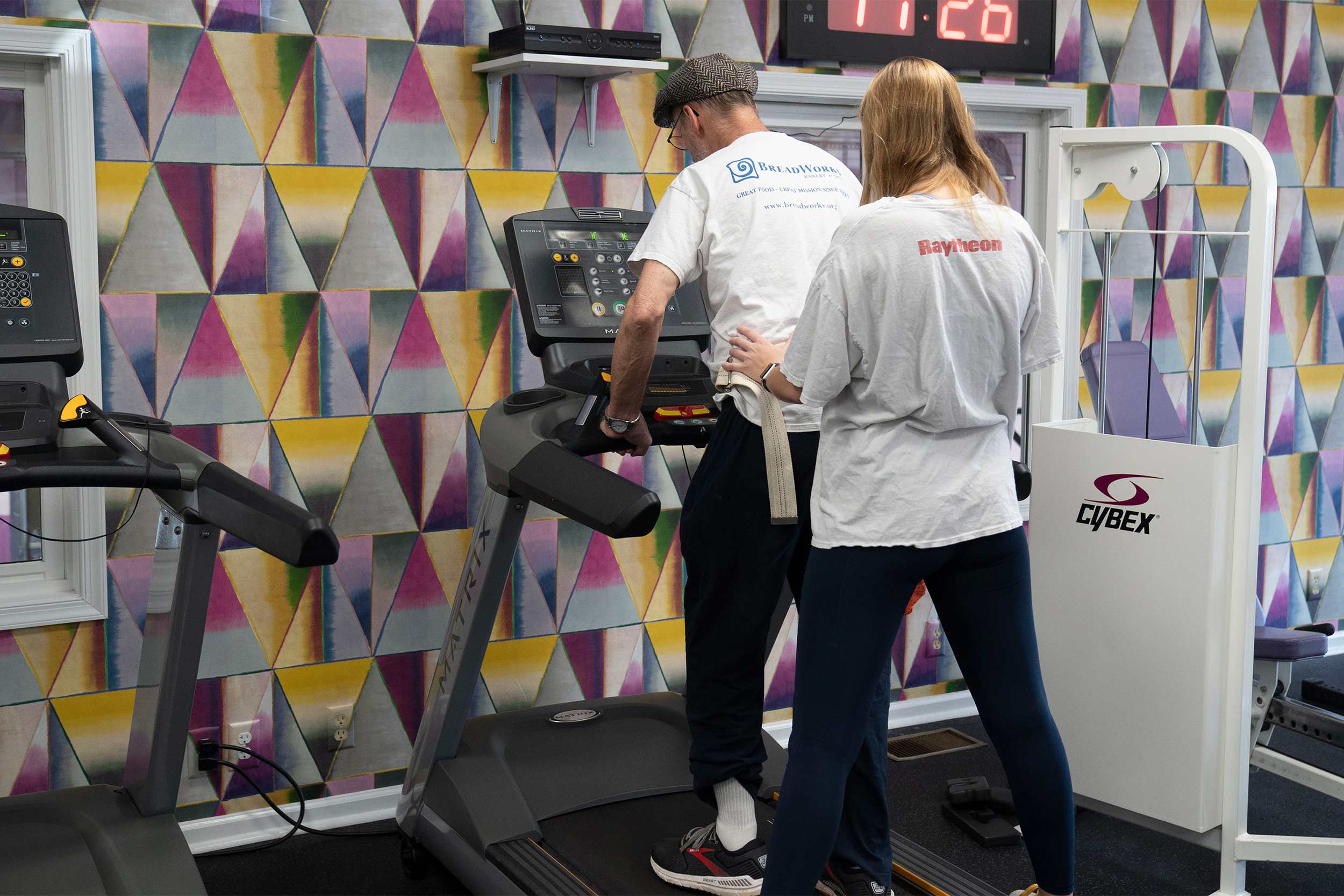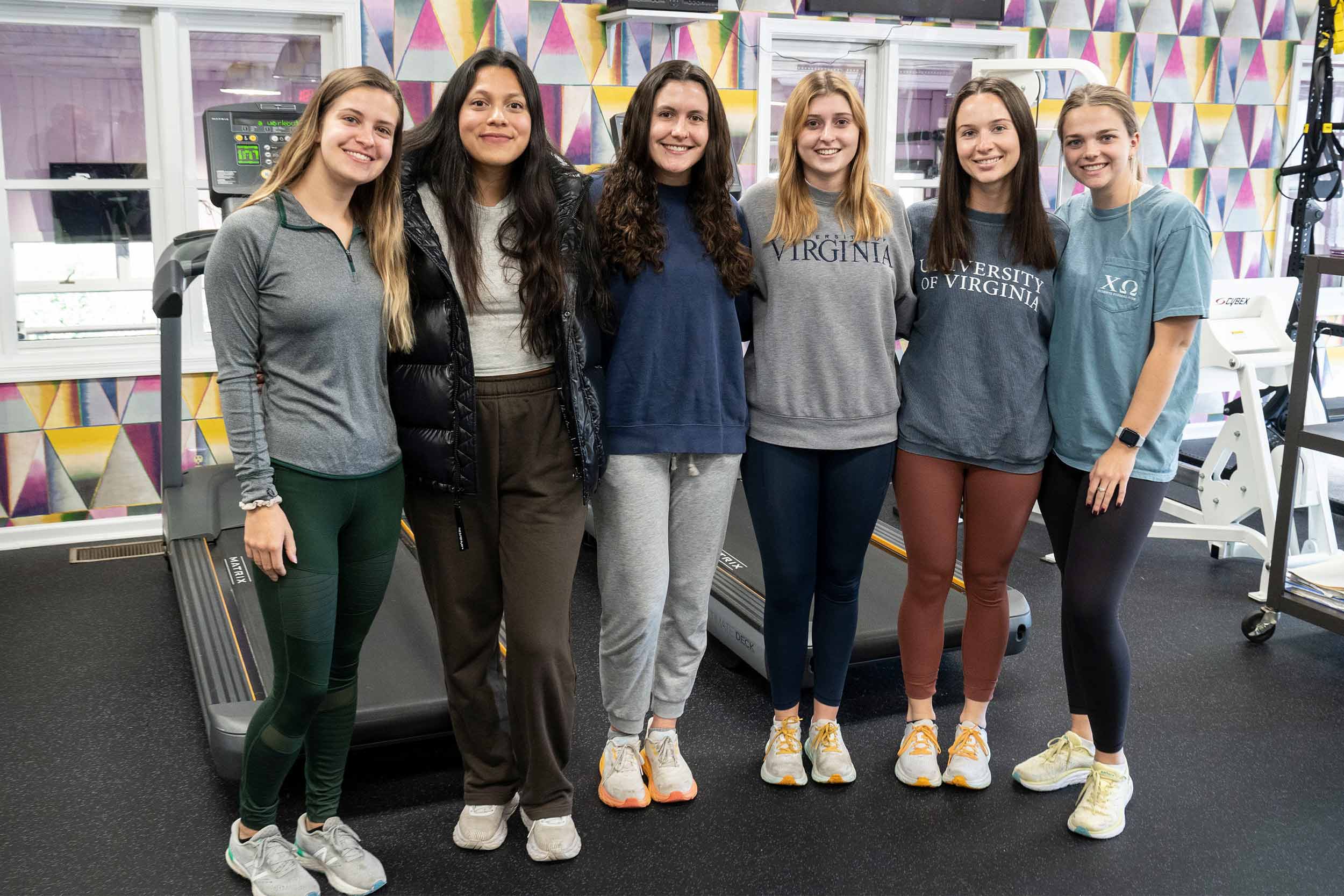The experience has inspired many UVA students to devote far more time and energy to center clients than they probably imagined they would. Siblings Ben and Helen Gaynes, for example, have volunteered at the Fried Center throughout their undergraduate years.
Ben Gaynes said that, as much as he’s learned from the physical therapists on staff at the center who work with the interns, he learned even more from the clients.
“I hadn’t truly interacted with the population of individuals with disabilities before, so I didn’t know what to expect,” Gaynes said. “But they are the best people to work with. They make all of us happy every time we work together and help us learn a lot about ourselves. I don’t think there is a better experience I could have had in college than working at [the center] and it’s something I’ll never forget.”
For their part, the interns are in nearly unanimous agreement that they love the program, working with their clients and being with each other. They’re also sad that it will end when their internships come to a close.
“I feel very grateful that we have this opportunity,” Fuentes said. “We can measure their progress over time and we get to see the difference. I feel like the other interns are my friends and so are the [coworkers].”
“It’s going to be sad to leave because we won’t have the opportunity to spend this much time with our clients, again,” Glatt said. “It’s great seeing how independent they are, how friendly.”
Unlike corporate-run or commercial physical therapy outlets, there is no set time frame for an appointment. If more than 20 minutes is needed to help the client, more than 20 minutes is taken.
“If we need an hour or three hours with someone one day, we can do that,” said Strick, who worked in traditional physical therapy centers before coming back to the center. “You can see the impacts on the client and see the long-term benefits.”
While the interns are unlikely to find jobs where they can spend as much time with their clients, they agree that working with the Innisfree residents provides a rare opportunity to see how important their occupations can be for individuals, especially those with challenges.
“They are an underserved population and we have had the opportunity to see how well they respond,” intern Liz Wombacher said. “That puts us ahead of the rest of the world in understanding. When we leave and get jobs elsewhere, we need to spread that knowledge. It’s up to us to catch the rest of the world up. We may be the ones to make a change.”
